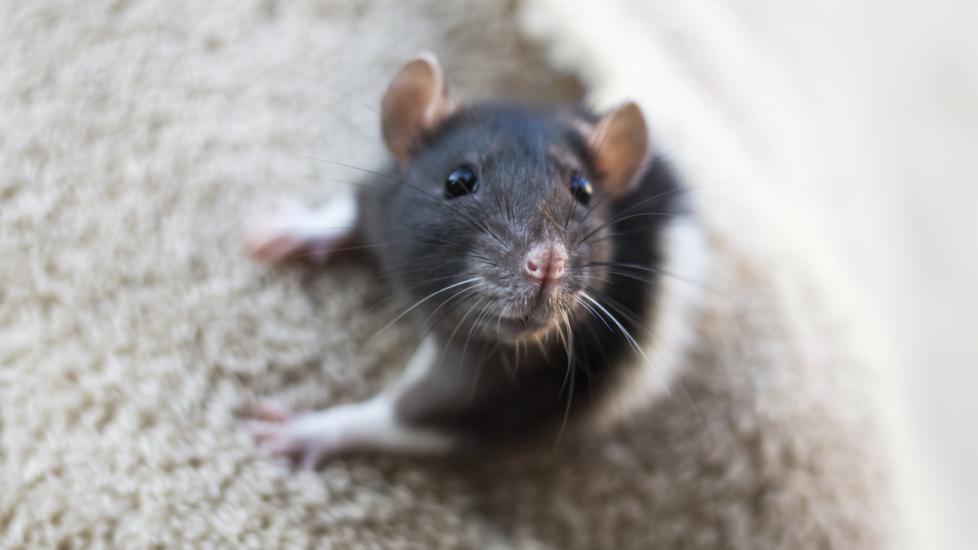What Is Rat Boggling?
Pet rat parents have likely witnessed their rat displaying unusual eye and teeth grinding. While these movements may seem concerning at first, these behaviors, called eye boggling and bruxism,
What Does Rat Boggling Look Like?
Eye boggling is when the eyeballs vibrate rapidly, bulging seemingly in and out of the eye socket. The eyes tend to become large and boggling during intense bruxism.
What Is Bruxism in Rats?
Bruxism, commonly referred to by pet rat fanciers as “bruxing,” is a soft but repetitive grinding of the incisors, or front teeth. When a rat is “bruxing” more aggressively, it may cause the bulbous eyes to pop out of the socket even more. A rat’s anatomy is unique in that the jaw muscle passes behind the eyeball. So when the jaw is moving rapidly up and down during bruxism, the muscle will also vibrate the eye at the same rate.
Why Do Rats Brux?
Rat teeth, like most rodents, are constantly growing. They need proper care, food, and toys to ensure the teeth are worn down appropriately. If rat teeth aren’t consistently chewing throughout the day, the teeth become misaligned, causing abscesses and difficulty eating.
“Bruxing” helps wear down the teeth, but is never a replacement for correct husbandry and other environmental ways to grind their teeth. Healthy teeth are important for the overall health of a pet rat and are a primary area of focus during veterinary exams. It is a good idea to start looking at your rat’s mouth for signs of any abnormalities and to acclimate your rat to having their mouth examined.
Similar to a cat purring, bruxism in rats is commonly performed when the pet is relaxed and content. However, rats may also grind their teeth when they are experiencing anxiety, stress, discomfort, or pain. Take into account the overall picture when your pet rat is “bruxing” or eye boggling. If they are not eating, drinking, or behaving abnormally, contact a veterinarian as soon as possible for an exam and diagnostics.
Rat Chattering
Rats can also chatter their teeth, which is similar to bruxism but may be louder with more sharp cracking noises. Chatter may occur when a rat is having an intense encounter and is torn between the physiologic fight or flight modes. Rats also chatter with some illnesses—especially respiratory disease. Contact your veterinarian if your pet rat is chattering or “bruxing” more than normal in addition to any of the following:
-
Labored or increased breathing
-
Coughing or sneezing
-
Lethargy
-
Decreased appetite
-
Ocular, nasal, or oral discharge
Rats typically only live for 2-4 years, so regular veterinary care is crucial to keeping them healthy. A 3-year-old rat is roughly equivalent to a 90-year-old human! Keeping their teeth aligned properly allows normal mastication (chewing), nutrition, and supports overall health.
What Does it Mean if my Rat is Boggling?
This photo of a rat boggling shows how the rat’s eyes bulge abnormally during boggling. While the eyes appear to pop out of the socket, this can be a normal, even happy, expression.
Happy pet rats may boggle when they are:
-
Pet by their family
-
Held by their family
-
Playing with a favorite toy
-
Eating a favorite food
-
During pleasant mental stimulation
While it is most commonly believed to be an expression of joy, boggling that occurs secondary to distress-induced bruxism, may be an indicator of disease. Evaluate your pet rat in its entirety—their behavior, appetite, and overall demeanor. Whenever in doubt, seek veterinary help. While boggling and “bruxing” are likely normal, it’s always better to be safe.
References
Help us make PetMD better
Was this article helpful?
